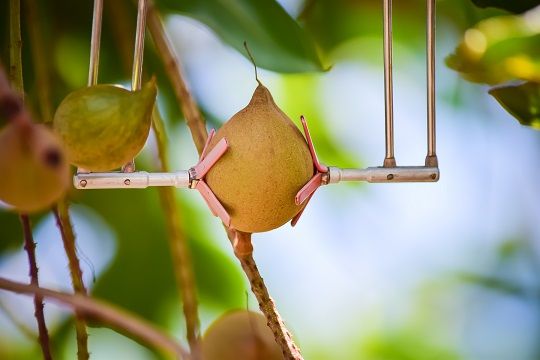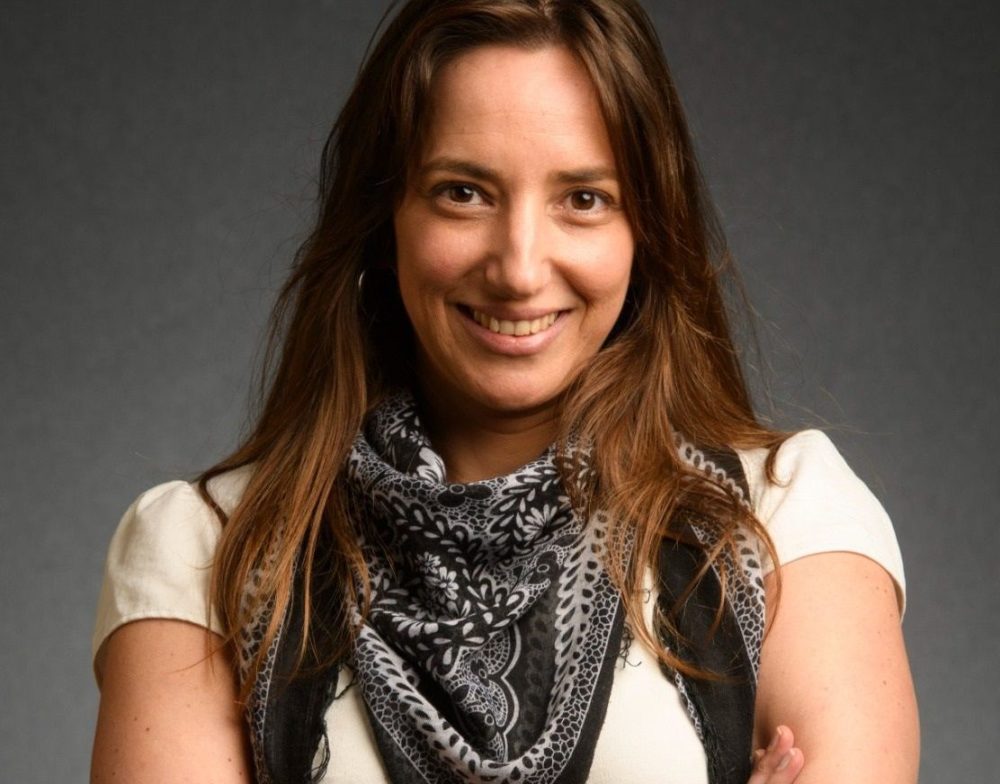“I live and breathe technology,” says Revital Kremer, chief technology officer of SupPlant.
After years spent working in various industries including the military and videogaming, she wanted an opportunity where she could use her tech skills to make a difference in the world. She found that chance at SupPlant.
The Israeli precision agtech company collects data from on-site sensors to help farms optimize their water usage – telling them when to irrigate, and how much. This can lead to water savings and increased yields, according to the company that was recently named one of TIME‘s best inventions of 2021.
The company works with 31 different crop types across 14 different countries and runs what Kremer says is the largest plant database in the world for irrigation. As CTO, one of Kremer’s biggest priorities is to also make the precision farming system available to smallholder farmers around the world that cannot necessarily afford sophisticated technology to monitor their crops.
In what she says is her first interview, Kremer (RK) dives into SupPlant’s precision agtech offering with AFN and discusses how it’s helping women smallholder farmers around the world improve their farming and their livelihoods.

AFN: What led you to join SupPlant?
RK: I joined SupPlant in August 2020 after more than two decades in building software, designing software and leading different teams in software and domains like the military industries and gaming and then moved to IP and network management. I live and breathe technology and finally, I had the opportunity to make a difference in something that has a major effect on global aspects such as climate-adaptive changes and water scarcity, and stuff like that. So this is very exciting for me to be part of SupPlant and part of creating this kind of technology in general.
AFN: Talk us through a little bit more of SupPlant’s precision agtech.
RK: Plants change in size during the day in terms of micrometers and we can now detect [those changes] and basically take a proactive approach rather than a retroactive approach to track stress at the very early stages in order to provide the plant the exact amount of water [it needs].
We place sensors on the ground, on the track, on the leaves, and at the foot of the plant and we detect the daily increase and decrease in [plant] sizes and collect measurements every half-hour [that are then sent to our cloud.]
Then we [teach] all the AI algorithms and classical algorithms to provide data and insights to the farmers, such as that plants are experiencing a heatwave or severe stress. On top of that, we have the calls to action. That means that a farmer can just get into the dashboard and get the call to action for what to do in the field. The farmer can use a mobile, a personal laptop, or can also get notifications by email or message.
We know how to treat different crops in different manners in order to increase yield and food quality.
AFN: As the CTO, what do you see as SupPlant’s biggest technology priorities going forward?
RK: The first area is the hardware — we want to support different, additional types of crops. We need specific sensors and specific devices that can be placed on bananas, which is not the same as apples or corn, for instance. So we need to enlarge our sensor base in order to provide a solution for other crops.
The second thing is we recently launched a new product targeted at smallholder farmers that cannot afford the expensive hardware solution. This requires our system to be scaled up; instead of thousands of users, [it needs] to support half a billion users: smallholder farmers located all over the world. So I think that this is my target as CTO to provide a substantial solution for this.
AFN: Describe a couple of major challenges you’ve faced as you’ve transitioned to working in agriculture.
RK: As CTO and as a woman, I know that the high-tech world is men-dominated. So normally I entered the room and most of the people are men and not always willing to hear what I have to say. I really like the point in the meeting when they look up from the laptop and say, “Hey, this girl has something to say.” I just use my knowledge and my professional skills in order to solve the problems and not anything else. So I really like the moment that people understand that women have something to say in this environment.
I have to say, at SupPlant, it’s the first time I don’t have to “prove myself” as a woman. Fifty percent of the C-level positions are occupied by women. The R&D team is 40% women in all areas, hardware, software, data, AI and so on. The atmosphere is very welcoming and very encouraging of any person regardless of whether you are a man or a woman, in terms of religions, and so on.
AFN: What’s next in terms of getting precision agtech to more people?
RK: One thing is providing a solution for smallholder farmers that is basically a subset of the sensor-based solution. It’s less accurate, but it’s good enough; it’s something for this population of smallholder farmers. And what we do in Kenya is provide statistical data and irrigation recommendations for 500,000 women farmers that grow maize. It’s amazing to see how they react to this. And amazing to see how they even get information because it’s not very trivial to get information when you’re in Kenya and you have only one smartphone throughout the village. So it’s very exciting.
Another reason why it’s so important to do this is that Kenya is under extreme drought and the women need to walk 15 miles to get the water in order to water their maize. So it’s really critical for them to know if it’s going to be raining or if the maize has enough water.
Most agtech companies focus on 2% of the farmers in the world. And we decided to make our technology accessible to the other 98% of farmers as well. Kenya is only the beginning of that.





